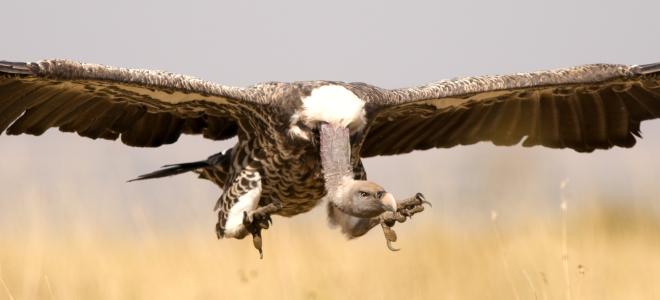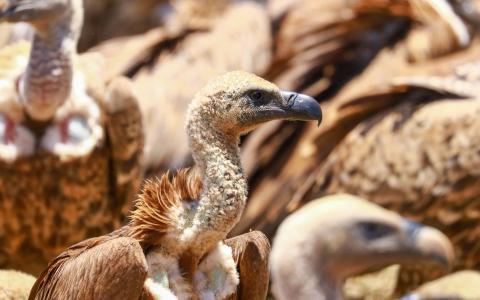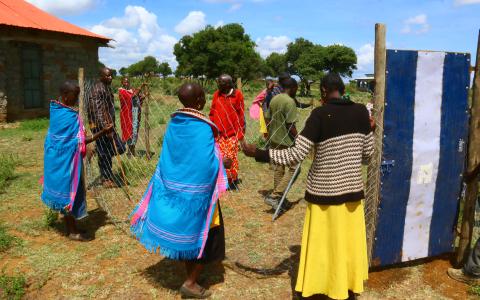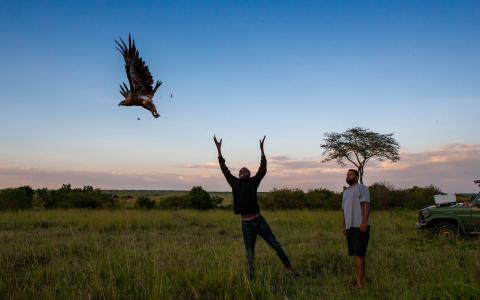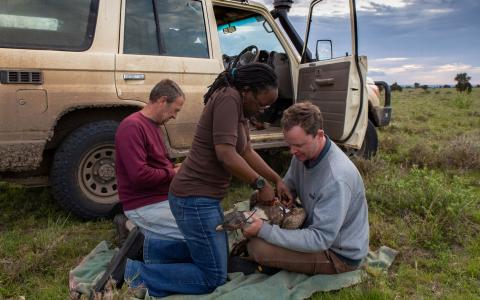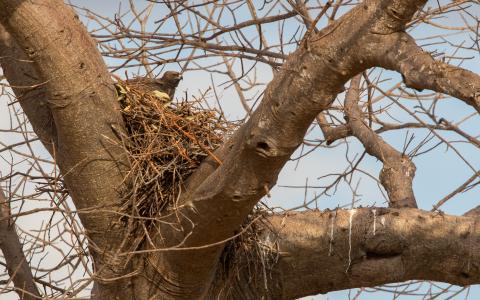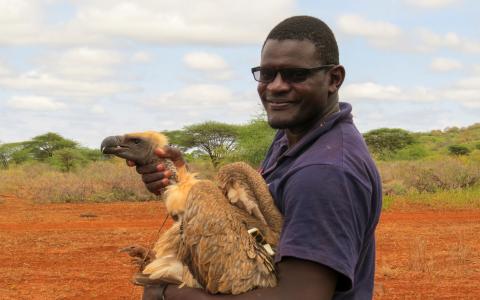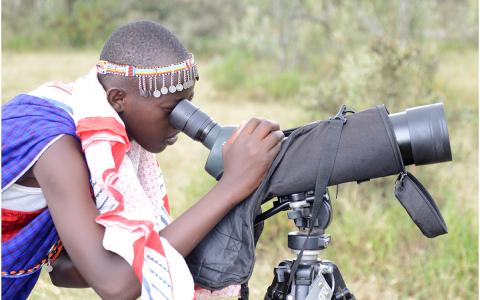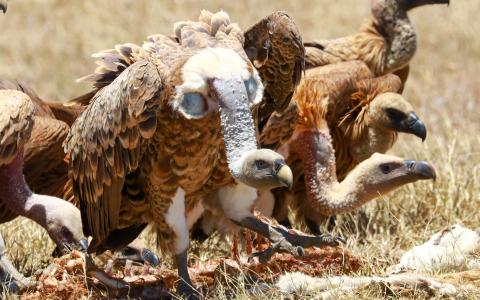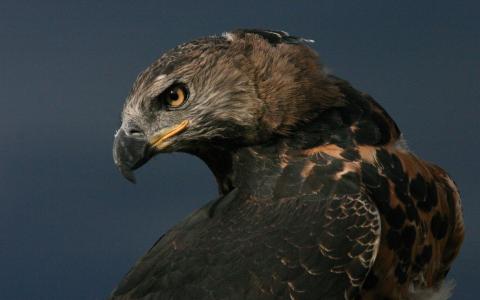Raptors, including top predatory eagles and nature’s most efficient scavengers, the vultures, have a crucial role in maintaining healthy ecosystems and providing untold benefits to the environment, human health, and economies. Across East Africa, these birds of prey are facing many important threats including poisoning, habitat loss, electrocution on power lines, collisions at wind farms, and persecution. Mass poisoning events in retaliation for livestock loss are killing many more vultures and eagles than their intended victims, lions and hyenas, and are decimating vulture populations. The loss of these species is having a devastating effect on savanna ecosystems, and, if left unchecked, could lead to species extinction, ecosystem collapse, and increased threats to human wellbeing.
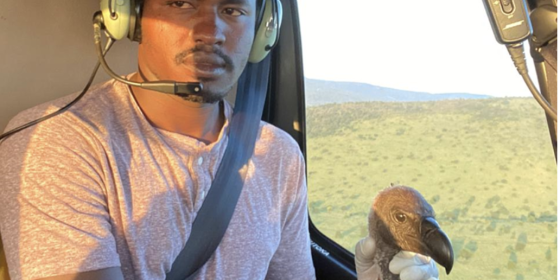
Abraham Loomuna
Our Impact
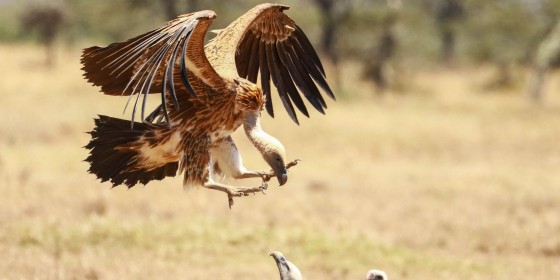
Darcy Ogada
You Can Help
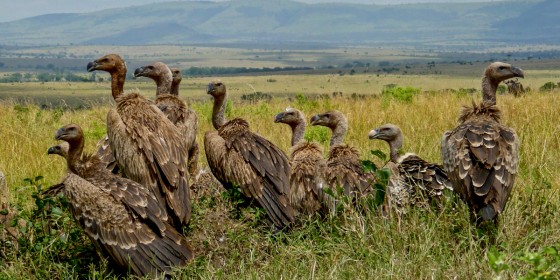
Evan Buechley
You Can Help
Learn More
The Peregrine Fund has a Kenyan-registered branch, The Peregrine Fund-Kenya (No. FC-Y6TL5V). P.O. Box 1629-00606, Nairobi, Kenya
Additional Information
- Read our latest annual report
- Read an article featuring this project from Kenya's Swara Magazine.
- Watch a video of vultures quickly consuming a carcass
- Visit our Explore Raptors Page
